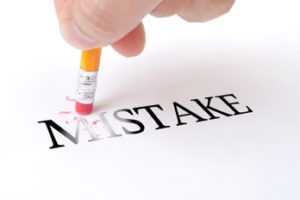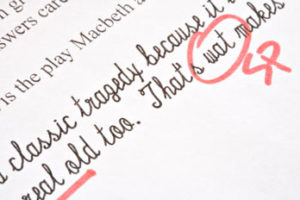
Eight Common Writing Mistakes
We all make mistakes in our writing. The most common mistake is the typo — a missing word, an extra punctuation mark, a misspelling, or some other minor error that is an oversight rather than a reflection of the writer’s skills (or lack thereof). A more serious kind of mistake is a deep flaw in…Read More

Keeping a Journal Makes You a Better Writer
The more you write, the better your writing becomes. That’s not an opinion; it’s a fact. Experience breeds expertise, so if you write a lot, you’ll become an expert writer. Writing every day is the best way to acquire lots of experience. Writers who come to the craft out of passion never have a problem…Read More

100 Common-Sense Ways to Write Better
Nobody’s born knowing how to read and write. Sure, the lucky ones have talent, but we all start out learning our ABCs. We memorize the sounds that letters make, and we learn how they come together to form words. Pretty soon, we’re reading. Someone puts pencils in our hands and then we’re scribbling letters on…Read More

The Ultimate Guide to Writing Better
As I travel around the internet reading blogs, watching interviews, and listening to podcasts on writing, I’ve noticed that much of the focus is not on writing at all. There’s a lot of talk about writing fast, e-books versus paper books, and the fate of brick-and-mortar bookstores. But most of the chatter is focused on…Read More

What’s the Difference Between Good Writing and Great Writing?
A good piece of writing holds your attention. It flows smoothly and everything makes sense. It’s interesting and a pleasure to read. Great writing, on the other hand, doesn’t just hold your attention; it commands your attention. You become lost in it. You can’t put it down, and when you do, you want to read…Read More

How to Conduct Credible Research for Writers
Today’s post is an excerpt from the book 10 Core Practices for Better Writing. Enjoy! “‘Research’ is a wonderful word for writers. It serves as an excuse for EVERYTHING.” — Rayne Hall Almost all writers rely on research for facts and information. Even fiction writers and memoirists, whose work is either made up from imagination…Read More

Writing and Editing Polished Prose
Writing leaves an impression. Readers will come away from your work feeling informed, entertained, inspired, even moved. Or will they? When I was in high school and during my early college days, I wrote papers and turned them in without giving them so much as a second glance — no revisions or rewriting and no…Read More

How to Write Faster
There are a lot of benefits to writing fast, if you can do it. The faster you write, the more works you can produce. If you write for a living, then theoretically, that means more money in less time. Many people write slowly or write only when they feel the urge, so jumping on the…Read More

Should You Write Fast or Write Well?
In recent years there has been a trend building around writing fast. The idea is to finish a book as quickly as possible, publish it, and start immediately on the next book. You soon have a decent sized catalog. Each release creates new opportunities for marketing, so you are constantly able to promote your works….Read More

How to Improve Your Writing
Have you ever put a project on hold because your writing skills weren’t up to par yet? Do you ever set ideas aside because they seem too ambitious and you don’t feel ready to tackle them? Have you ever wondered how to improve your writing so you would be better equipped to handle more complex…Read More



